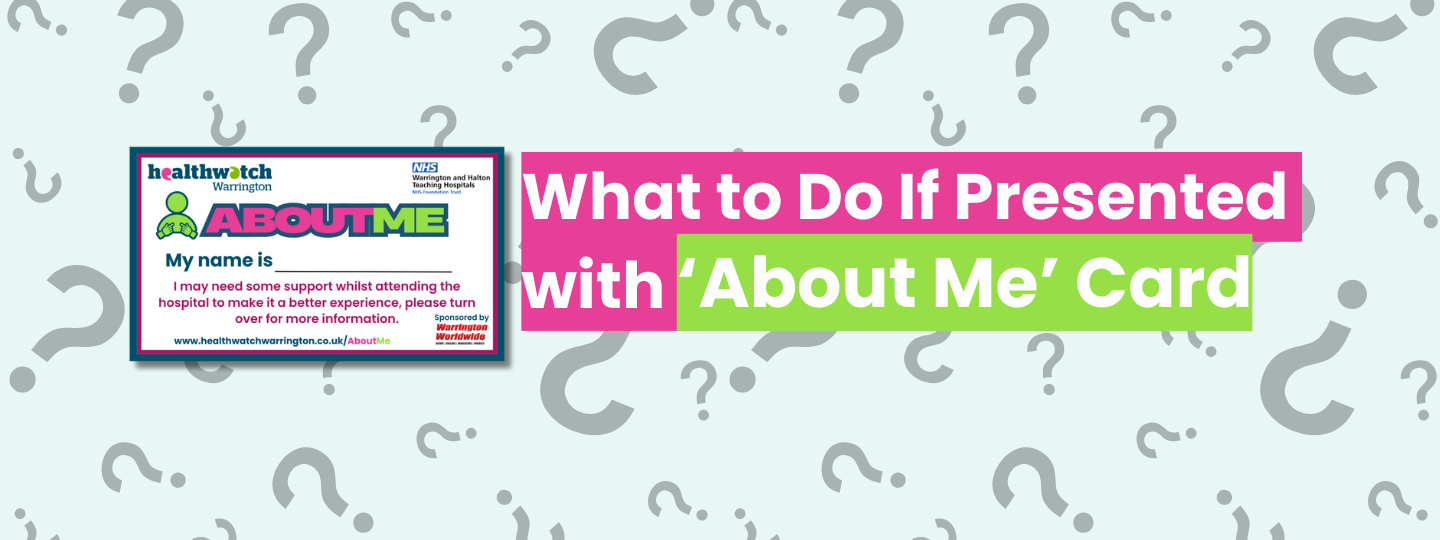
The About Me card is intended to inform healthcare professionals that patients may have specific needs or require additional support to improve their hospital experience.
When patients present this card, it empowers them by encouraging hospital staff to understand their needs and provide reasonable adjustments. It also opens the door for meaningful conversations, ensuring that the patient feels heard and supported.
Empathise
Please show the person who has given you this card empathy and understanding. They are in a situation where their immediate instinct may be to leave or ‘shut down’ and not engage. This comes from the need to protect themselves as they feel unsafe and not in control of the situation. It does not mean that they do not wish to engage with you and whatever process they are there for; it means that, at this moment in time, they are unable to do so through no fault of their own.
Be patient
Please be patient and give the person time, without pressure. If they are able to communicate, ask them if there is anything you can provide that would help, such as being in a separate room or going outside for some fresh air. It may be that there is a song on the radio which has triggered them; this could be turned off. There are endless possibilities, but if you are able to communicate in a sensitive and understanding manner, the person may feel able to tell you what they need.
Reassure
The individual may need to remove themselves from the current situation as soon as possible. This does not mean that they don’t wish to engage or continue at a later date with the process that was underway; it simply means that they are unable to do so at this moment in time. Please assure them that you will reach out to them to discuss how they wish to proceed at a later date. It is important for them not to feel that their care or support will be adversely affected by something that is out of their control.
Where can I get more information?
The most important thing you can do for someone affected by trauma is to offer them time, space and understanding. The behaviours they are exhibiting are symptoms which, at this particular point in time, they are unable to control through no fault of their own. Each person’s trauma is individual and therefore requires an holistic, person-centred approach.Your employer should be able to provide you with support and training around working with trauma, but there are also specific organisations which can provide information: